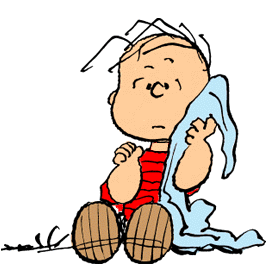Oh man, what do I do? In just over 300 pages of "On the Road", I read Jack Kerouac intimately describe journeys, maniacal, tough, rugged, intense, depressing, and gratifying journeys back and forth across the continent, in what is vastly considered a legendary and untouchable piece of literature, and really, nothing for me to do except reflect. Yes, that's the point of this blog anyway, reflection, but my mind is so blown right now it's incredible.
Sal Paradise is the narrator, Dean Moriarty is his wild-eyed and slightly insane friend, and they are representative for what Kerouac himself would term the Beat Generation. They are the twenty-something souls displaced by World War II, and so they journey and journey and run into dead-ends and brick walls and, of course, oceans, searching for life. Hard to say, by the end, that they found anything resembling what they set out for, but the adventure, the "kicks" as Dean so often referred to them, that's what illuminated what Kerouac so often referred to as a sad life. He especially liked the word sad. He used it to describe just about everything in the world.
Still, something radiates out in this story that transcends all of the sadness, and these boys strike gold in such unorthodox fashion that you must thoroughly examine the pages and penetrate the density of Kerouac's prose and the magnitude he could strike with even the simplest of language, and you have to see. There is so much talk of souls here, so much so it's trippy and it shines on you. If nothing else, Sal and Dean are sharing time and space to believe in the ecstatic. As they bounce back and forth, Dean like a pinball between his women and relationships and responsibilities, Sal between his limiting reality in New York and fantasies of the West, they talk madness and sweat and shake and do whatever comes their way, avoiding worry and avoiding following society's expectations. It's anarchic. For those of us caught in the jaws of regular society, you have to fear for'um a bit, especially as Sal, who goes from exuberant to weary and back every 20 pages, is shown in such obvious light that Dean Moriarty is not capable, truly, of being down for him with all that's on his plate, as he abandons Sal in San Francisco starving and barely able to fend for himself. But in the end, his loyalty to Dean runs deep and he knows this guy and his incapability to right himself and the limitations of his empathy, and in the end, his true madness, and he loves Dean for so many reasons, in this strange way that never fades, so remarkable and unconditional and so counter-cultural in a quid pro quo society, and in that, so majestic.
This will stick with me a long time. "On the Road" isn't just, as it says on the back, "THE NOVEL THAT DEFINED A GENERATION", it is a novel that defines the dreamers still. With a decent awareness of the context in which Kerouac wrote this beacon of post-WWII lit, one can relate to it now, the band of people searching beyond the blandness of our Subdivision Nation, beyond the dulling of intellect and, as always in every generation, the marginalization of radical ideas, until all we have are our own souls, with such a yearning to share them, and a sparse few out there who even seem to give a damn. The world, like that, can be pretty scary, but what's the sense of worry, as Dean Moriarty once said and I'll paraphrase, it's all passing us by anyhow.
"Boys and girls in America have such a sad time together; sophistication demands that they submit to sex immediately without proper preliminary talk. Not courting talk - real straight talk about souls, for life is holy and every moment is precious."

No comments:
Post a Comment